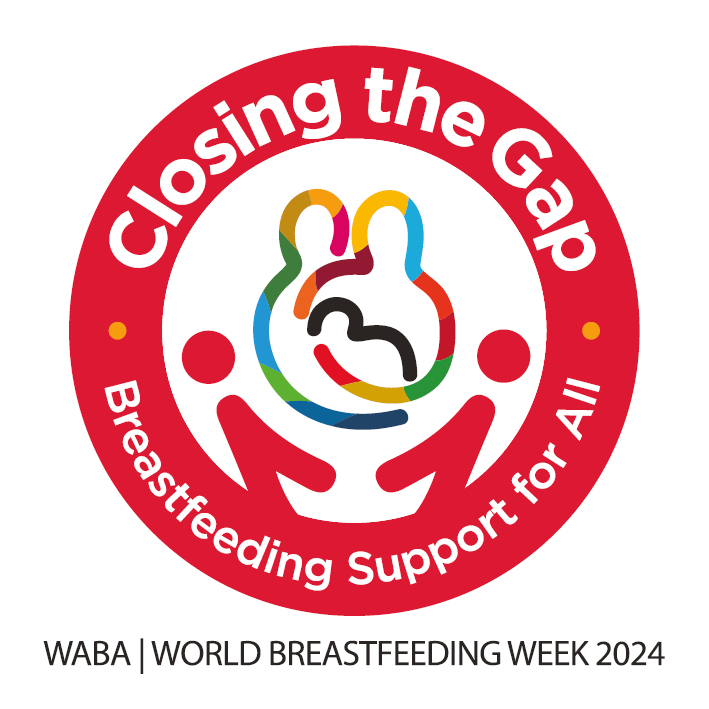World Breastfeeding Week is August 1-7, but it is celebrated in Canada from October 1-7. It is celebrated in October because it is the 10th month of the year and symbolizes the first week of a baby's life (after nine months of pregnancy) when a baby may begin to breastfeed or chestfeed.

The #WBW2024 slogan "Closing the Gap: Breastfeeding support for all" will focus on survival, health and wellbeing. It will showcase the need to improve breastfeeding or chestfeeding support to reduce inequalities that exist in our society with a special focus on breastfeeding or chestfeeding in times of emergencies and crises. The theme is aligned with thematic area 2 of the WBW-SDG 2030 campaign.
The World Alliance for Breastfeeding Action (WABA) reminds us that although support at the individual level is very important, breastfeeding or chestfeeding must be considered a public health issue that requires investment at all levels. In Canada, just over 91% of mothers/parents initiate breastfeeding or chestfeeding but 1 in 7 stop before newborn reaches one month of age.** A warm chain of support will help build an enabling environment for breastfeeding or chestfeeding and protect against industry influence. It is time to inform, anchor, engage and galvanize action to close the gap in breastfeeding or chestfeeding inequalities and support breastfeeding or chestfeeding at all levels.
**The Public Health Agency of Canada (PHAC) Canada's Breastfeeding Progress Report 2022
Learn more about World Breastfeeding Week
In October, the Quintessence Breastfeeding Challenge celebrates breastfeeding or chestfeeding and milk-banking and demonstrates promotion, protection, and support for breastfeeding or chestfeeding women/parents and their families. It's a chance for education and peer support to be done in a fun social way.
The challenge is usually held the first Saturday in October of each year to see which geographic area (province, state, or territory) has the most breastfeeding or chestfeeding babies, as a percentage of the birth rate, "latched on" at 11 am local time.
Check our our resources here: PSBC National Breastfeeding Week 2024 Campaign and learn about PSBC's 'Snap and Share' social media campaign #PSBCSnapShare2024
